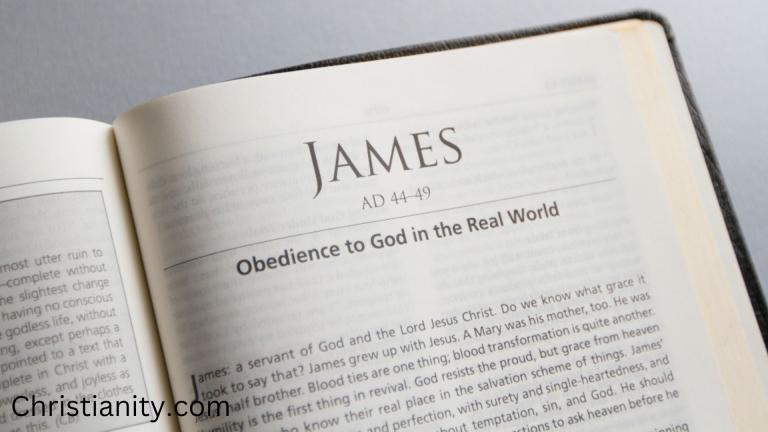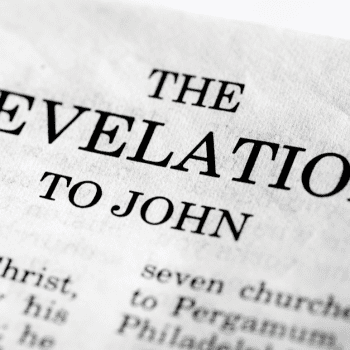
Monday: Read James 3:1-12
James opened with a reminder that we should be “quick to hear, slow to speak and slow to anger” (1:19). Then, in 1:26, he asserted, “If anyone thinks himself to be religious, and yet does not bridle his tongue but deceives his own heart, this man’s religion is worthless.” In 2:1-12, James reiterates the royal law of love and added, “So speak and so act as those who are to be judged by the law of liberty” (2:12). Clearly something was going on with the recipients of this letter that James was addressing.
James begins by confronting those who teach. He urges his readers not to seek to become teachers because “knowing that as such we will incur a stricter judgment” (3:1). This warning was certainly leveled at those who were teaching and not displaying love in their teaching.
The problem for the teacher is that their primary vehicle is the tongue. James explains that we all sin but since the tongue is the most difficult part of the body to bridle the teacher is more susceptible to stumbling.
James uses two illustrations to highlight the significance of the tongue (3-4). Both illustrations relate to transportation: one by land (horse) and one by sea (ship). He also illustrates this by referencing fire (5-6). For James, the irony is that we can tame the animals (7), but “no one can tame the tongue” (lit, of humans) (8).
The power of the tongue is evidenced in that it is used to bless and curse (9-10a). James adds, “these things ought not to be this way” (10).
Questions to ponder/discuss:
- Replying to the old adage about sticks and stones Doug Moo notes, “Far easier to heal are the wounds caused by sticks and stones than the damage caused by words.”[2] This is the danger of teaching. The book of Hebrews adds that pastors (who are teachers) “keep watch over your souls as those who will give an account. Let them do this with joy and not with grief, for this would be unprofitable for you” (Heb 13:17).
- If you are a teacher, I urge you to always surrender your preparation and your teaching to the Spirit.
- If you are under a teacher, pray for them, for yourself, and for all whom they might influence.
Tuesday: Read James 3:13-18
For James, teachers must teach with a wisdom that is displayed in godly living and humility. When James asks, “Who among you is wise and understanding?’ (13), he is still addressing teachers. James is seeking wisdom from the teachers, not by telling them to be wise but by manifesting good works in wisdom.
For James, there are two kinds of wisdom to be pursued. There is one with envy and ambition (14-16) and there is a true wisdom that leads to peace (17-18).
James contends that wisdom is tied to “good behavior” (13; Prov 1:1-7). By good behavior, he means “the gentleness of wisdom” (13). In James’ world, this meant not retaliating with anger to criticism. Thus, he says, “where jealousy and selfish ambition exist, there is disorder and every evil thing” (16). The word for “jealousy” (14, 16) here indicates a “zeal” that often results in violence. Though this may not seem like much to our modern western culture, what James is advocating for was radically counter-cultural.
James then adds, “If you have bitter jealousy and selfish ambition in your heart” (14), then you are manifesting an earthly and even a demonic form of wisdom (15). The problem with such behavior is that it undermines the very message of the truth that we profess (14).
James then lists seven attributes of wisdom that is from above (17). For James, “the seed whose fruit is righteousness is sown in peace” (18)
Questions to ponder/discuss:
- Scot McKnight says, “A wise teacher is the one who creates godly, loving peace in the community.”[3] How might this look when there are significant disputes within the community? How might this look when the disputes are over matters of doctrine? How might this look when the disputes are over significant moral issues? (discuss these questions and what it means to pursue peace and yet maintain integrity in beliefs and conduct).
Wednesday: Read James 4:1-10
As James begins to bring his discussion to a close regarding teachers and their efforts to retaliate in anger, we should note the change from 3rd person to 2nd person. James now addresses them directly: “you.”
He begins by asking, “What is the source of quarrels and conflicts?” (1). Commentators are in disagreement over whether they were actually waging war against one another or just metaphorically doing so. That it was only metaphorical derives from the fact that Jesus said that hatred was equal to killing (Matt 5:22). At the same time, the context certainly suggests that they were committing acts of violence. Ralph Martin notes: “Since James and his community were situated in a Zealot-infested society and since it is quite conceivable that (at least) some of the Jewish Christians were former Zealots, the taking of another’s life is not out of the realm of possibility for church members as a response to disagreement.”[4]
For James, acting in a retaliatory manner is what the world does, and “friendship with the world is hostility with God” (4). But, James notes, “God gives a greater grace” (6).
James begins to close this section with a call to repentance (7-10). By means of ten commands, James explains that this is how one becomes humble and repents. He begins with “Submit therefore to God” and “resist the devil and he will flee” (7). Note the presence of mourning and weeping (9). James concludes the list with “humble yourselves in the presence of the Lord and He will exalt you” (10). To be humble is to align with those in need and to become dependent on God.
Questions to ponder/discuss:
- When James says that “You do not have because you do not ask” (2) it is likely wisdom that they do not have. This raises the question as to why God doesn’t answer our prayers. Scripture gives us some reasons: including “doubt” (1:6-8; 5:14-15); “not asking” (4:2); and “asking for wrong reasons” (4:3). What are some other reasons why you suspect that God doesn’t answer our prayers?
Thursday: Read James 4:11-17
In 4:11-12, James sets forth his conclusion to his long presentation on pure speech that began in 3:1-2. The focus of this extended section has been verbal sins in church. James concludes that since we are not God, we should not judge one another (11-12). Note the change of tone in 4:11 to “brothers” or “brothers and sisters.”
When James warns them “not to speak against one another” (11) he is likely directing this at the teachers. When he says “do not speak against one another,” he has in mind the ideas of falsely accusing and slandering others. This corresponds with the “jealousy” or “zeal” of 3:14, 16.
In 4:13-17, James speaks harshly against the wealthy merchants. There is good reason to suppose that these are not members of the church, but are in fact the ones who were oppressing those within the church.
Questions to ponder/discuss:
- Context is everything. We must be careful here about taking James’ words and making concrete rules with regard to them and not considering the context. James should not be understood as condemning all judging (he condemns the wealthy oppressors in the closing part of this letter). There was a specific problem that James was addressing. The context suggests that he was speaking against those who were harshly responding to criticism by denouncing their brothers and sisters and doing so in a way that fails to reflect the love of the Gospel.
- At the same time, we should not too quickly dismiss James’ words. There is a time and a place for firm action against those who are creating trouble (see 2 John and 3 John).
- What then are we to take away from James’ words? We should begin with: love comes first. In addition, this is where wisdom enters the story.
- With all this in mind, what are your thoughts with regard to dealing with conflict in the church?
Friday: Read James 5:1-20
In 5:1-6, James continues his strong speech against the wealthy who were oppressing believers. This group may well be the same as the merchants in 4:13-17. As we saw in 2:1-7 the members of the church were favoring the wealthy. Although may seem odd to us, it was the nature of the Roman world. The wealthy had almost complete control of the economy. In order to get by in the Roman world, one had to give honor to those in power.
James begins by pronouncing a coming judgment upon those who are rich and oppressing the poor (1). James notes that their riches (2), their garments (2), and their gold and silver (3) will not last.
The problem is that they have withheld “the pay of the laborers who mowed your fields” (4). To withhold pay from a day laborer who needed their daily wages to survive was a great travesty (note: the OT law required daily pay; see Lev 19:13; Deut 24:13; Matt 20:8). In addition, they “have condemned and put to death the righteous” (6; 2:11; 4:2). The righteous who have not even resisted them (6).
As a result, God will bring judgment upon the wealthy oppressors (5). James refers to a “day of slaughter” (5), which was commonly used by the prophets to indicate a time of judgment (Obad 10; Zech 11:4, 7; Isa 30:25; 34:2, 6; 53:7; 65:12; Jer 12:3; 15:3; 19:6; 25:34; 48:15; 50:27; 51:40; Ezek 7:14-23; 21:15).
In 5:7-11, James addresses the Christian community and how they ought to respond to the arrogant and oppressive actions of the wealthy. In essence, they should wait for the Day of the Lord—when God judges the oppressors—and not resort to violence (8). James notes that they can be patient because God will bring judgment (9).
They are also to remember the examples of suffering and patience in the prophets (10). Then he adds, “We count them blessed who endured” (11).
In 5:12-20, James brings the letter to a close. The closing, however, does not conform to other NT letters. There is no repetition of previous matters. And there are no greetings.
In 5:12, he adds a note about not swearing oaths. In 5:13-18, he encourages them to help one another through prayer and acts of forgiveness.
Questions to ponder/discuss:
- James is a powerful book. What are your primary takeaways? What parts have been the most convicting? What are some steps that you are going to take in response to this study of James?
[1] This guide is meant to be done either as a group study over the course of 2 or 4 meetings (Day 1-5; 6-10; 11-15; 16-20), or as a private devotion over the course of 4 weeks (or a calendar month—5 lessons per week).
[2] Doug Moo, 160.
[3] McKnight, 303.
[4] Cited in McKnight, 322.













